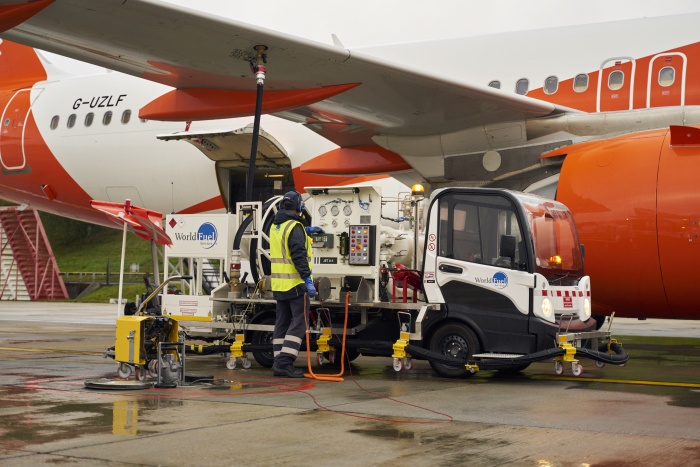
Sustainable aviation fuel used for first time at Gatwick Airport
With the first one departing earlier, a total of 42 easyJet flights operating from Gatwick Airport are to be powered by a 30 per cent Neste My Sustainable Aviation Fuel blend.
This milestone marks the first time a departing flight at Gatwick has used sustainable aviation fuel (SAF) and is also the first usage by any easyJet service from the UK.
It confirms the commitment of all parties involved - international aviation fuel supplier Q8Aviation, easyJet, Gatwick Airport and Neste – to achieve a net carbon emission reduction in the fuel used in aviation and work towards an ultimate goal for aviation to reach net zero emissions by 2050.
Of the 42 flights running blend, 39 of these will be the easyJet flights operating from Gatwick to Glasgow throughout the COP26 Climate Change Conference, which runs from October 31st to November 12th.
Across all 42 flights CO2 emissions will have been reduced by up to 70 tonnes.
ADVERTISEMENT
Q8Aviation has delivered the first supply of Neste My Sustainable Aviation Fuel to the fuel supply at Gatwick Airport.
The process starts with Neste-produced SAF which is blended with Jet A-1 fuel at a depot upstream of Gatwick Airport to create a drop-in fuel that is compatible with existing aircraft engines and the airport infrastructure, without requiring extra investment.
Q8Aviation then deliver the fuel to the main storage tanks at Gatwick Airport for supply to easyJet aircraft via the airport’s hydrant system.
Tim Norwood, director of corporate affairs, planning and sustainability of Gatwick Airport, said: “We are pleased to work with our partners to be the first airport in the Vinci Airport network to introduce SAF on a commercial flight and prove the concept that Gatwick is ready and able to operationally utilise SAF.
“SAF is one of several ways that UK aviation and Gatwick will reach net zero carbon by 2050, alongside carbon offsets, airspace modernisation and continued innovation in aerospace technology, including electric, hydrogen and hybrid aircraft systems.
“With smart government policy to underpin investment in cost competitive UK SAF production, many more flights could be using UK produced SAF by the mid-2020s.”

